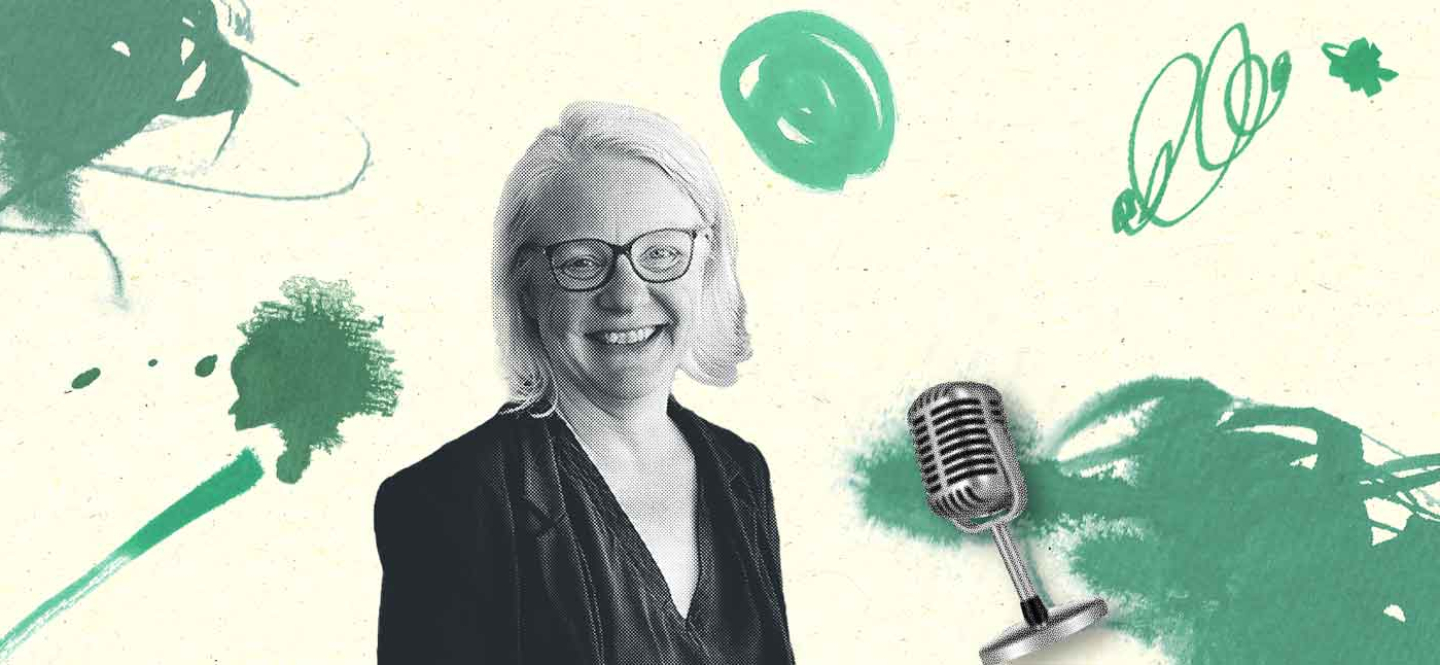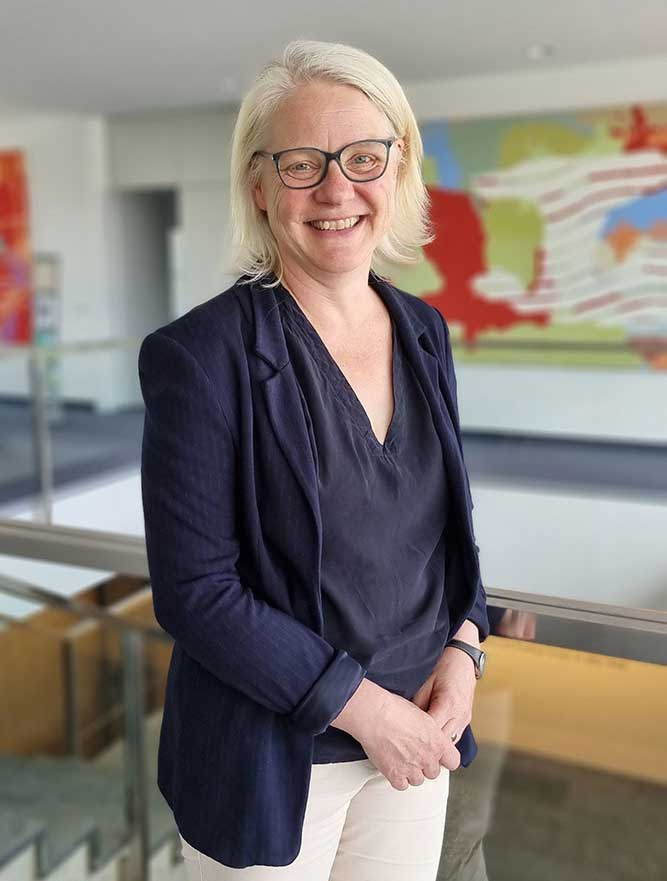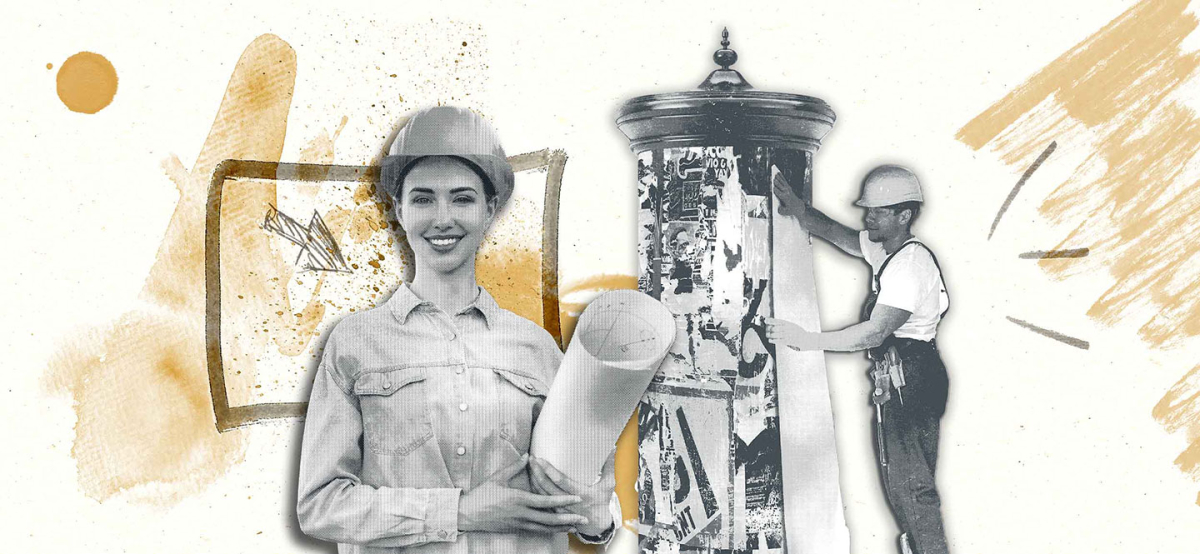Transdisciplinary research: "We firmly believe this concept works"
#Transdisciplinarity
The Volkswagen Foundation believes that transdisciplinary research is a promising way of tackling major future issues. In the following interview, team leader Adelheid Wessler explains how the Foundation wants to create new funding opportunities to help establish this methodological approach over the long term – alongside basic and discipline-defined research.
Science needs to find concrete solutions to the pressing problems of our time more quickly than it has in the past. Otherwise, it risks losing relevance in political and social discourse. In the view of the Volkswagen Foundation, this overdue requirement calls for an increase in the participation of actors outside the academic community in the formulation of research questions and in the actual research process. The Foundation believes that "transdisciplinary research", or TD research for short, is a suitable methodological approach for making constructive use of different perspectives.
However, TD research does not have an easy time of it in Germany. It will undoubtedly be some time before it is as deeply anchored in the scientific system as discipline-defined or basic research. In order to drive this development forward, the Foundation regularly creates new funding programs that call for transdisciplinary input – currently, for example, the "Change! Fellowships and Research Groups".
In this interview, Adelheid Wessler, Head of the "Social Transformations" profile area, explains the Foundation's strategic goals in promoting transdisciplinary research.
There are still many reservations regarding transdisciplinarity: too complex, excessive organizational effort, divergent expectations on the part of participants from different disciplines – not to mention those of actors outside the academic community that need to be involved. And transdisciplinary expertise is something not required in appointment negotiations. So why does the Foundation nevertheless support this methodological approach?
Wessler: Building bridges between science and society has been an integral part of the Foundation's funding strategy for decades. In our international funding, for example, this has always worked well. For over two decades, we have supported science in Central Asia/Caucasus and sub-Saharan Africa. The transfer from research to application has always played an important role in these regions. Many forms of cooperation with stakeholders other than academics have been successfully tested there. In other words: We have produced sufficient proofs of concept to show that transdisciplinarity does indeed function.

Dr. Adelheid Wessler manages the profile area "Social Transformations".
What exactly does the Foundation mean by transdisciplinarity?
Wessler: There is still no universally valid definition, although there is now some literature on the topic. From the Foundation's point of view, it is important to clearly distinguish transdisciplinarity from interdisciplinarity. Transdisciplinary research – also known as "TD research" – is clearly about supplementing the scientific discourse with perspectives from stakeholder groups outside the academic community in order to make a contribution to the urgently needed transformations. This transformation knowledge is created in the context of an open process in which the positions of the various stakeholders are constantly reflected upon. In our profile area "Social Transformations", this methodological approach naturally plays a central role...
Why?
Wessler: Because cross-border and multi-perspective approaches are a methodological focus in the profile area. Here, the projects are expected to generate new knowledge on social challenges and open up new ways of shaping social transformations. Our funding programs are currently addressing the topics of "demography", "circular economy", "wealth", "health" and "democracy".
Already hot topics...
Wessler: At any rate, we are addressing very current global challenges here. We are living in times of crisis – from a global, regional, and local perspective. Our livelihoods are perceived to be under threat. What will be the effects of climate change? Can our standard of living be maintained in the face of a shortage of raw materials? How should we respond to the threat to our democratic social order? People expect the scientific community to provide guidance and advice regarding these questions. And faster, much faster, than science with its rule-based knowledge process has been used to in the past.
And transdisciplinary research delivers these results?
Wessler: Of course, there can be no guarantee. We are still in an experimental stage. A few days ago, for example, we reached the deadline for the funding initiative "Transformation knowledge about democracies in transition". Here, transdisciplinary groups were able to apply for funding, ranging from the joint definition of the research question to a participatory research process and the development of results for science and policy makers. We have received more than 70 applications. You see, there is considerable interest in the topic. Under the umbrella of this initiative, we have also approved the first funding for transdisciplinary task forces. These groups have a year to define a research question and work on it until the preliminary results are ready. There is great interest in such dynamic projects. We will be carrying out accompanying research to determine whether the intended effect is achieved.
How do you know that participants outside the academic community actually become involved in the way the Foundation would like them to be?
Wessler: In the case of our transdisciplinary funding programs, especially our new "Change!" program that provides grants for individual researchers, applicants must justify the constellation of all the project partners to be involved – and reflect on how they want to deal with political interests and agendas in the research process. Our primary goal is, as always, high-quality, and open-ended research. Transdisciplinary projects call for self-critical reflection. This may be exhausting at times, but the outcome offers huge opportunities – and can even lead to new job profiles.
What type of jobs?
Wessler: For example, we also provide project funding for the role of a "facilitator". This person's job is to keep the team together and keep it focused on the common research goal. You gain experience and expertise that is also useful for a career outside the academic system. A permanent professorship remains out of reach for most people. Even those who have perhaps chosen to avoid transdisciplinary research for career reasons should realize this. They should now take the plunge.

The target group for the "Change! Fellowships and Research Groups" are individuals from the world of science who want to research and initiate transformation processes together with non-scientific stakeholders.
Nevertheless, the German science system is proving unresponsive...
Wessler: But there is movement! In the current call for "Change! Fellowships and Research Groups", for example, we had 150 participants in each of two online consultation sessions! The funding of Research Groups in particular aims at established professors who want to build groups for transdisciplinary research. With this support for individual persons, we hope to achieve a strong structural impetus across the academic system. But this, of course, still requires support from the institutions.
How do other countries deal with transdisciplinarity?
Wessler: In many European countries, but also in the USA and Canada, researchers are working on this topic and developing ideas on how best to tackle the challenges facing society and the role that transdisciplinarity can play in this. The Foundation currently has a joint call with two major European sponsors, the Wellcome Trust in the UK and the Novo Nordisk Foundation in Denmark, on the topic of "Transdisciplinary Approaches to Mobility and Global Health". The Foundation also uses its membership of the UK-based "Research on Research Institute" to reflect on its experience of funding TD research. Going forward, we would also like to use our experience and these networks to contribute to the science policy debate on TD research in Germany and at international levels.
